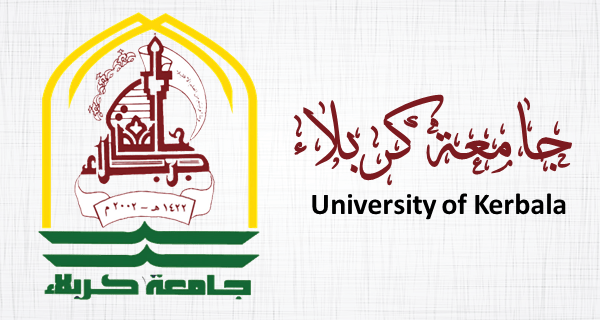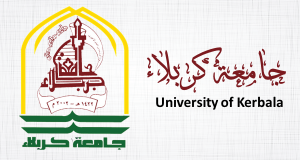Hawraa Ali Hussien
Collage of Law
Sustainable development is an international socio-economic term with which the United Nations drew a map for environmental, social and economic development worldwide. Its primary goal is to improve the living conditions of every individual in society, to develop means and methods of production, and to manage them in ways that do not lead to the depletion of the natural resources of the planet, so as not to We carry the planet beyond its capacity, and we do not deprive future generations of these resources, (meeting the needs of the current generation without wasting the rights of future generations), and without overusing the remaining natural resources on our planet.
Many of the natural resources that we harness in the service of comprehensive development in our country are constantly decreasing, as they are (non-renewable), especially the sources of energy, water and raw materials, of which the world’s consumption has steadily doubled since the industrial revolution, while the prevailing misconception remained that the land is an inexhaustible source of wealth. And a resource of unlimited energy.
But the alarm bell rang with danger, when the reports of experts in the International Committee on Climate Change confirmed that human activities are responsible for the dangers that have reached the future of humanity as a whole, from air pollution and gas emissions to the atmosphere and the global warming, and the manifestations of melting ice in the poles, which It is accompanied by a rise in sea levels, which threatens very serious natural disasters.
This means that the responsibility for all these risks lies with the prevailing development patterns that we use. Therefore, the efforts of the United Nations and a large number of regional organizations, specialized international agencies, non-governmental organizations, and countries, including the Kingdom of Saudi Arabia, have mobilized to face the task of addressing this reality, and adopting the implementation of the sustainable development goals towards establishing a global, humane, solidarity community to face all global challenges, eradicate poverty, Changing patterns of production and consumption in unsustainable sources, protecting and managing natural resources, preventing global environmental degradation, declining biodiversity and desertification, and addressing water, air and sea pollution.
and with
This means that there should be a comprehensive view when preparing strategies for sustainable development, in which these three dimensions are taken into account, the most important of which is the social dimension, which makes it contribute to the sustainability of development in its comprehensive concept, which is what the Ministry is keen to adhere to in its various effective activities. And as the forces of high-speed globalization continue to move goods, information, and money across borders at an increasing speed day after day, and also continue to bring ever-increasing benefits to those within its circle.
There is a growing realization that this train of prosperity misses most of the world’s population. Indeed, most of the benefits of globalization do not reach more than half the world’s population, the 3 billion people who live on less than $2 a day. More than a billion people still live in extreme poverty, millions of people live without work, and a growing number of societies are fractured under racial, ethnic, or social pressures. The gap between the world’s rich and poor has widened as financial crises threaten Asia and the Pacific. Obliterating what has been achieved over the years of growth and improvement.
In order to achieve social development, the countries of the world sought to achieve this, with the continuation of neoliberal globalization in imposing serious challenges, including insecurity, poverty, enslavement, inequality within or between societies, and the spread of financial crises. Noisy anti-globalization protests increased in Seattle in 1991.
For heads of state and government (189) countries to adopt at the headquarters of the United Nations General Assembly in New York from 6-8 September 2000 the draft United Nations Millennium Declaration to advance development and reduce poverty by the year 2015 or before, obligating their countries to exert more efforts in starting to deal with incomes insufficient.
widespread hunger, gender inequality, environmental degradation, and a lack of education, health care, and clean water.
In order to achieve these goals, the social requirements must be followed to achieve sustainable development, which is to follow the democratic method of governance. One of the most important requirements in achieving sustainable development is the provision of governance for the benefit of society, and it is chosen in a democratic manner, provided that participation in governance is by all individuals in society. Governance constitutes the basic basis for development.
And the importance of population distribution, and we mean the advancement of individual development to help slow down migration from the countryside to large cities, because of its dire environmental consequences.
As well as taking special political measures by adopting technologies that lead to reducing the environmental impacts of urbanization, as well as working to distribute the population between urban and rural areas in a planned manner, in order that development does not waste the sources of investment of natural resources on which this development is based, i.e. development that works to renew resources and wealth and restore Manufacturing in a way that guarantees a clean and suitable environment for the life of present and future generations. A green environment represented by agricultural lands and the reduction of pollution in major cities.
Since many of the natural resources that we harness in the service of comprehensive development in our country are constantly decreasing, as they are non-renewable, especially the sources of energy, water and raw materials whose world consumption doubles. steadily since the Industrial Revolution, while the prevailing misconception remains that the earth is an endless source of wealth and a resource of unlimited energy.
In the beginning, the human being formed the focus of the definitions presented on sustainable development, as it includes human development based on improving the level of health care, education and social welfare.
This is indicated by the report of the International Committee for Development and Environment (Brundtland) that sustainable development is development that meets the needs of the present without undermining the ability of future generations to meet their needs. The phrase sustainable development also means a pattern of the
Information technology in general, and electronic services and communications in particular, play an effective role in consolidating the concept of sustainable development, as it enhanced research and development activities to improve the performance of government and private institutions, and led to the development of new administrative and institutional patterns such as digital cities and technology incubators, as well as stimulating economic growth and generating job opportunities. New projects that contributed to reducing poverty, developing plans and programs that aim to shift towards an information society, and working to achieve the goals of national transformation. These modern technical means made it possible to provide information, facilitate access to it, and answer citizens’ inquiries, which helped raise the level of services provided by the Ministry and thus improve productivity in order to achieve the comprehensive goals of sustainable development.
In light of this qualitative shift in the technical field and the shift from traditional paper-based manual work to electronic transaction methods, the Ministry of Environment, Water and Agriculture worked to provide an advanced technical infrastructure, on the basis of which a set of electronic services was launched, in compliance with the Ministry’s commitment to the strategic goals of the National Transformation 2020 towards transformation and raising the percentage of electronic services provided To achieve these goals, the Ministry must follow these methods:
Developing a package of e-government services by applying the latest international technologies in this field and focusing on spreading the culture of service excellence
• – Making electronic services available and simplifying their procedures through a unified window for services through the Ministry’s electronic portal
• – Activating the e-government program while adopting comprehensive transformation methods in applying e-government and providing advanced services
• – Developing the central infrastructure to keep up with and support the electronic transformation of the ministry’s systems and services and build a comprehensive and shared database with other state institutions
The electronic services provided by the Ministry of Environment, Water and Agriculture through its electronic portal apply international best practices and simplify them to be accessible to users, in order to raise and improve work efficiency.
Also, the Ministry of Environment, Water and Agriculture has a role and its affiliated bodies to consolidate the concepts of sustainable development in all its departments and affairs, and its renewed interest in sustainable development is considered one of its most important goals and basic initiatives, which seeks to exploit renewable natural resources in a way that does not lead to their annihilation, deterioration, or decrease Their feasibility for future generations, while preserving a stable balance of natural resources that are exploited with rational management, and effective and safe methods at the same time.
To achieve sustainable development with its social dimension, address climate change, as climate change represents the greatest threat to development, and its unprecedented and widespread effects disproportionately fall on the poorest and most vulnerable. There is an urgent need not only to address climate change and its effects, but also to build resilience in dealing with climate-related risks and natural disasters. One of the development goals is to strengthen the capacity to adapt to those risks and to integrate climate change-related measures into national policies,





























































